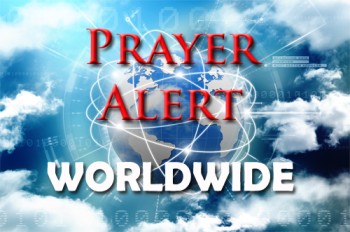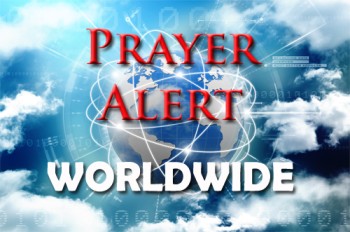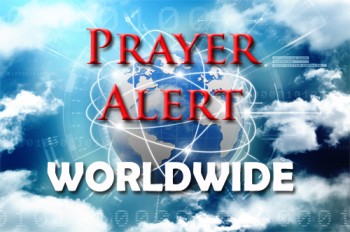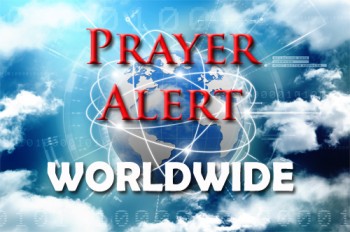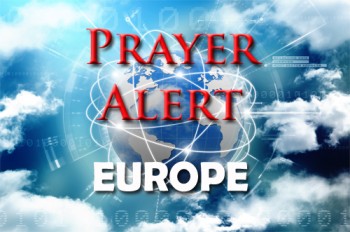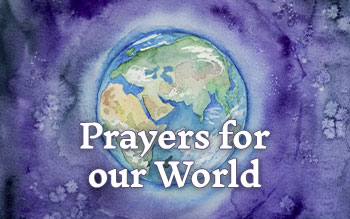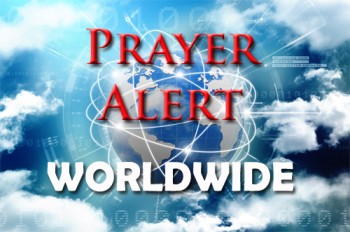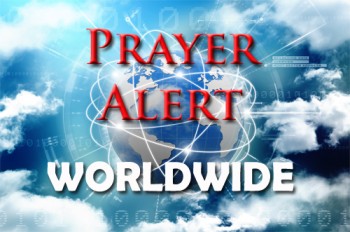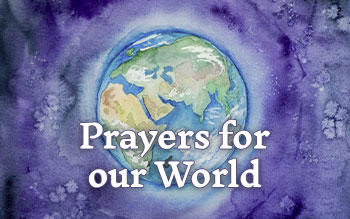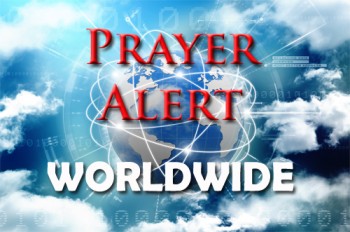Displaying items by tag: tensions
Iran: tensions over jail sentence for French national
France said on 8 November that one of its citizens being held in Iran has been sentenced to five years in prison on a baseless conviction, and called for his immediate release and that of three other of its nationals held in the country. Ties between the two countries have been strained over the issue in what Paris has said are arbitrary arrests that are equivalent to state hostage taking. Louis Arnaud, who has been held since September 2022, is being detained at the Evin prison in Tehran. His mother said that the pretexts given for his sentencing were for propaganda and harming the security of the Iranian state: ‘These are completely baseless, a carbon copy of what they attribute to other Europeans held in Iran.’ In recent years, the elite Revolutionary Guards have arrested dozens of dual nationals and foreigners, mostly on charges related to espionage and security. Rights groups have accused Iran of trying to extract concessions from other countries through such arrests - a charge which the government denies.
USA / Russia / Ukraine: tensions and threats
Joe Biden said there would be ‘enormous consequences’ globally if Russia invaded Ukraine and threatened personal sanctions on Putin if he does. His comments came as other Western leaders warned Russia would pay a heavy price for an invasion. The UK said it had ruled nothing out, including sanctions on people, banks and businesses. It wants all its allies to do the same, as collective action would deter Russia. Biden also said Europe must match America’s sweeping sanctions. However, Europe imports 45% of its gas from Russia, and Putin has used gas for geopolitical leverage before. Also, Ukraine is not a NATO member, so NATO has no obligation to defend it. Putin objects to Ukraine joining NATO as he wants to have more power there. Invasion is hard to imagine, but so is the prospect of Putin backing off without major concessions from NATO. Recently Russian, Ukrainian, German and French diplomats gathered for talks.
China calls for unification with Taiwan
Just days after 150 Chinese military jets conducted drills close to Taiwan, escalating tensions between the two sides, President Xi Jinping spoke at an event to commemorate 110 years since the revolution that overthrew China’s last imperial dynasty. He said, ‘Compatriots on both sides of the Taiwan Strait should stand on the right side of history and join hands to achieve China’s complete unification. The historic mission of achieving the complete unification of our country must be, and can be, realised.’ However, Taiwan’s defence minister said that military tensions with Beijing were at their worst point in more than four decades. China claims that Taiwan is part of its sovereign territory, in the same way as Hong Kong, and threatens to take control by force. Taiwan has its own elected government and constitution, maintaining that it will defend its democracy and independence.
Israel: extension of sovereignty
‘Annexation’ is actually Israel extending its civil rule over areas that are under its military rule. Whether Israel does this over a small area of what is in President Trump's peace plan, or over all of it, makes no substantive difference to nations and international organisations who are angry about what Israel might do. As this process drags on, it gets more confusing and the headlines become more depressing. Lord, guide Israel to know how you want them to pray and act so that You alone receive the glory (Psalm 115:1-3). The IDF and Israel's other security forces are preparing for an increase of violence over annexation. It is not known if this will lead to another intifada with many deaths, or just a brief display of anger followed by a let's-go-back-to-work attitude from the Palestinians. Currently the security forces are stopping an average of three terror attacks a day.
Europe: countries redeploy troops
Despite a call by the Iraqi parliament for the withdrawal of its forces, the USA stated it has no plans to do so, even though a draft letter signalling a pull-out was sent to Iraq’s prime minister. Germany has transferred troops to Jordan and Kuwait for security reasons. About fifty British personnel who had been training Iraqi security forces were relocated - either from Baghdad to nearby Taji, or out of Iraq altogether - after they spent a day in a bunker to shield themselves from mortar shells. Twenty military planners have flown in to prepare for different scenarios, ranging from a deepening of the conflict with Iran to a full departure from Iraq. Croatia’s 14 soldiers in Iraq have been moved to Kuwait, and Italian troops moved out of the US base in Baghdad.
Latin America: Cold War 2.0?
Many geopolitical media watchers and prayer warriors believe the growing wave of anti-government protests ravaging the streets of Ecuador, Chile, Bolivia and Colombia hasn’t been seen since the old Cold War which is why the increase in protests and tensions might be called Cold War 2.0 in Latin America.
This time, at least as yet, there aren’t armed proxy groups in play but Moscow has weaponized social unrest to sabotage Western power in the region.
Earlier this decade we saw similar issues on Russia’s strategic periphery, notably in Ukraine in the wake of the 2014 Maidan protests and the 2005 Orange Revolution. These protests aren’t necessarily armed Marxists but anti-government protesters armed with anti-U.S. rhetoric.
Much the same approach is evident in Moscow’s support for Nicholas Maduro’s failing regime in Venezuela and with the help of Cuban operatives. Russia has become increasingly adept at using social media to disperse disinformation on the Internet.
Pray: for God to prevent cold wars through economic trade, cyber or arms race. (Psalm 2: 1,2a,4)
Pray: for peaceful and democratic routes to be brokered for the unrest in these Latin American countries.
Pray: that super-powers stop interfering with these vulnerable countries for their own gain.
Pray: for the Christian Church in Latin America, that it will continue to flourish and grow despite the economic and political tensions.
Saudi Arabia / Iran: tensions
Tensions between powerful Middle East rivals Saudi Arabia and Iran were catapulted to new levels when drones set two Saudi Arabian oil refineries ablaze on 14 September, resulting in halving the Gulf kingdom’s oil output and cutting world crude oil supplies by over 5%. Yemen’s Houthi rebels claimed responsibility, but the US blamed Iran for the attacks, and will now deploy troops to the region, triggering fears of Saudi retaliation. Any escalation would be dangerous for the entire region. The drone strikes follow a recent pattern: oil tankers, infrastructure and transportation hubs have been attacked, with indications that Iran and its network are responsible. The US ‘maximum pressure’ policy has not halted Iran’s uranium development. President Rouhani said Iran would present a new Gulf peace initiative in the coming days. On 23 September Boris Johnson blamed Iran for attacks on Saudi Arabian oil facilities and declined to rule out military intervention or sanctions: see
Lebanon: escalation of tensions
Lebanon opened fire on Israeli surveillance drones on 28 August, heightening the conflict between the warring neighbours. Lebanon does not usually attempt to down Israel’s unmanned surveillance planes, but its Hizbollah military wing said it was preparing a ‘calculated strike’ against Israel, in retaliation for an Israeli raid on its position near Damascus and a drone attack in Beirut on its Iranian missile-making equipment. Sources believe Lebanon will target Israeli soldiers on patrol near the border. Israeli media reported that Israel had targeted and destroyed machinery used for the production of precision-guided missiles. It is trying to disrupt the flow of weapons and technology from Iran to its proxies in Syria and Lebanon. In response to constant rocket attacks, Israel has carried out hundreds of strikes against Hizbollah and Iranian positions in Syria, so far with little response. Lebanon’s president is increasingly influenced by Hizbollah, which is also represented in the country’s parliament.
India: Pray for Kashmir
Christians around the world ought to pray for Kashmir as tensions in the region have spiked since Aug. 5, when India removed its long-established "special status," bringing the India-administered areas of Kashmir into direct control of the central government.
The decision exacerbated India's already strained relationship with Pakistan and prompted Pakistan's prime minister to threaten to globalize the issue and alarmingly escalate the situation by stating that "Pakistan would keep all options on the table."
I'm calling on Indian, Pakistani and all Christians to a simple task that transcends the complexity of the issue and the emnity that has long existed between our countries because of it.
Christians ought to pray to Jesus—the "Prince of Peace" - that peace would reign in our countries and in our region as God has called each of us to "seek peace and prosperity" for our countries, according to Jeremiah 29:7. The prophet continues, "Pray to the Lord for it, because if it prospers, you too will prosper."
And I'm calling them to do so intensely. Since the British partition of the Indian subcontinent in 1947, India and Pakistan have fought three wars over the Kashmir region. Hundreds of thousands of civilians and military officers have died on both sides of the border in armed conflicts and episodes of inter-communal violence. The last thing the region needs is another war, especially when both nations have nuclear weapons.
All of this has been especially complicated in recent years by cross-border terrorism as Pakistan's prime minister himself recently recognized that 30,000-40,000 terrorists operate on Pakistani soil.
Putting it all together, in just over 25 years over 45,000 people in Jammu & Kashmir have died in cross-border militant encounters between the countries and from terrorist attacks originating in Pakistan. When India cites national security concerns for its decisions in Kashmir, it's not without cause.
Yet, the status-quo situation in Kashmir has long been unsustainable, and by some act of divine providence maybe this disruption could result in a solution as the Indian government and the people of India embrace Kashmiris as fellow citizens of India.
That, however, might require a divine miracle, a miracle entirely unlikely if God's people do not pray.
And as they pray for a peaceful and permanent resolution to this intractable conflict, they should keep in mind that the security situation remains tense as curfews are still imposed, as new questions have arisen about the citizenship rights of some people living in Kashmir, and as India's national leadership and judiciary deal and work through the implications of the decision made by the government.
They should also pray for Christians, Hindus, Muslims and others whose religious freedom has sometimes been caught up in these political conflicts.
Ultimately, Christians should pray that no one will give license to hate in any form, always recognizing the inherent dignity in every human being and their God-given freedom of conscience.
As a Christian leader, I'm grateful for the generosity and kindness shown by our Christian friends around the world to commit our strong, yet also delicate, region to the hand of almighty God.
May we, as the apostle Paul prayed, have the privilege to "lead a peaceful and quiet life, godly and dignified in every way" (1 Tim. 2:2b, ESV).
Joseph
North Korea / US relationships
Donald Trump became the first sitting US president to enter North Korea in an ‘impromptu’ meeting after he left the G20 summit. Later he said that he and Kim would restart nuclear negotiations and he invited Kim to the US ‘when the time is right’. He added, ‘Great progress has been made, great friendships have been made and this has been, in particular, a great personal friendship.’ But the ‘friendship’ faltered four days later when North Korea accused the US of being ‘hell-bent on hostile acts’ and ‘obsessed with sanctions’. When Pyongyang's delegation visited the United Nations, North Korea also accused Washington of attempting to ‘undermine the peaceful atmosphere’ on the Korean peninsula. This indicates a return to the angry exchanges which have marred relations in recent times. We need to pray for the teams representing the US and North Korean leaders who will be meeting over the coming weeks to resume the talks which collapsed four months ago.
